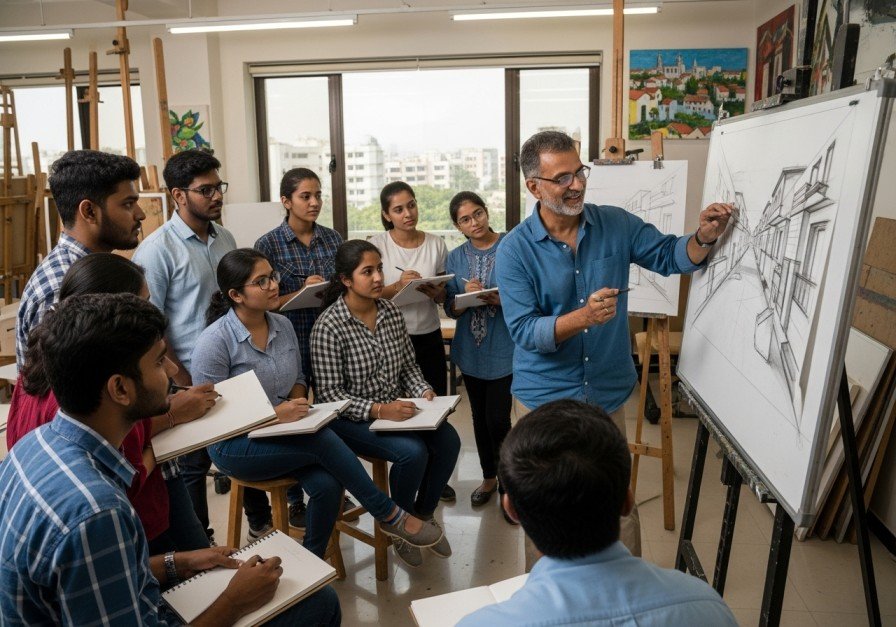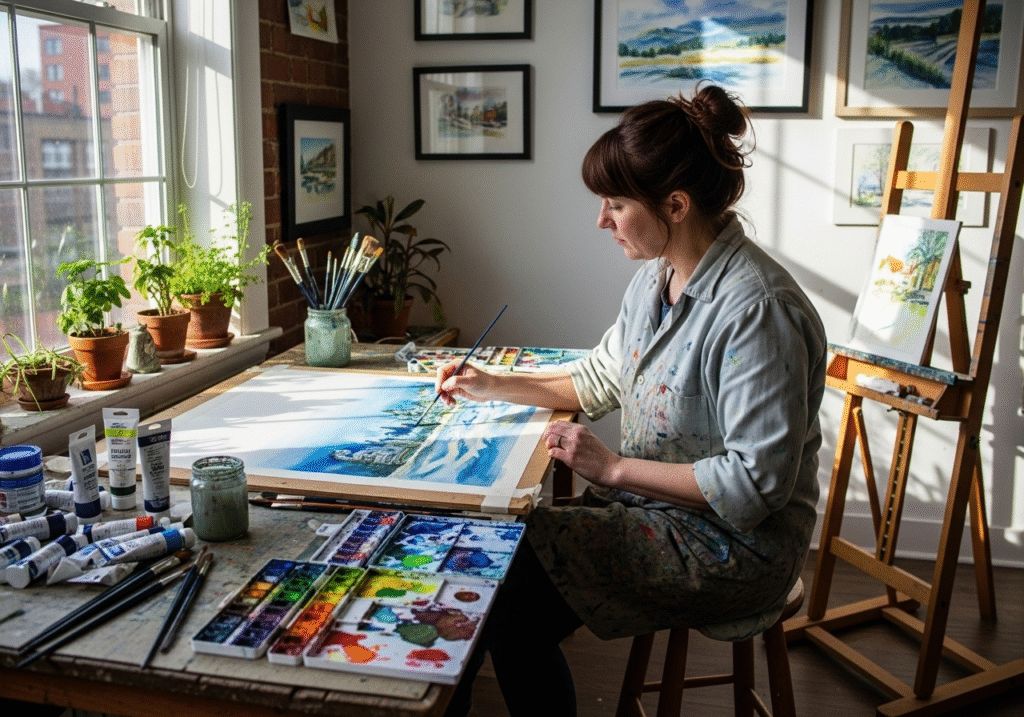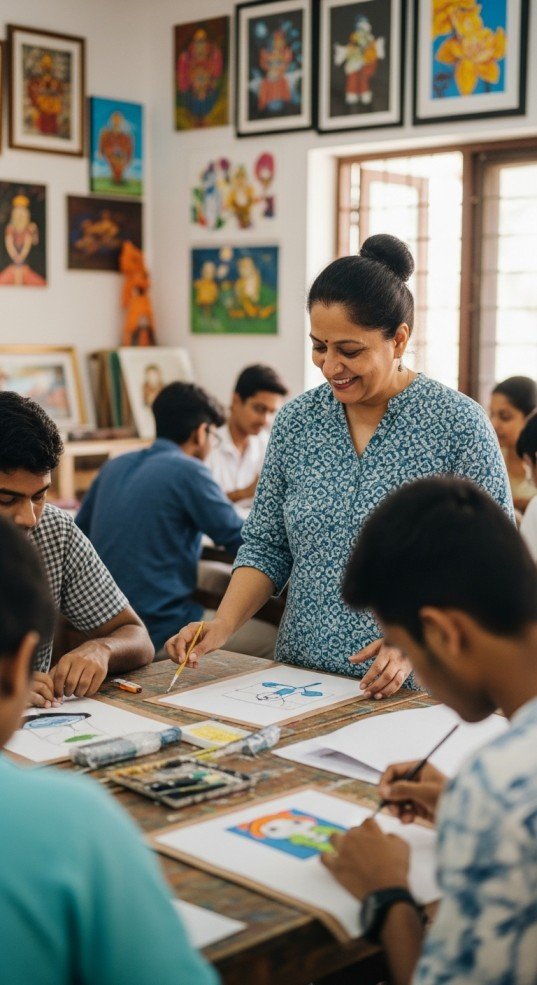
Switching careers can feel daunting—especially when you’re leaving a familiar field to pursue your passion for art. The good news? You don’t need a formal art degree to become an accomplished artist or inspire others as an art teacher. What matters most is your creativity, commitment, and a willingness to keep learning.
Here’s a step-by-step guide to making the leap.
1. Cultivate Your Artistic Skills
- Start Creating: Set aside time every day or week for drawing, painting, sculpting, or whatever medium excites you. The more you practice, the better you’ll get.
- Online Learning: Platforms like Skillshare, Domestika, and YouTube are packed with tutorials from practicing artists. Start with basics—color theory, composition, perspective—and expand into specialized techniques as you grow.
- Study Great Artists: Analyze the work of artists you admire. Try to replicate their style or incorporate elements into your own art.
2. Build Your Portfolio

- Document Your Work: Photograph and save all your finished pieces, no matter how basic. Over time, this becomes a visual record of your growing skill.
- Create a Website or Social Media Presence: Use Instagram, TikTok, or a simple website to showcase your art. A strong online presence attracts both potential buyers and future students.
- Seek Feedback: Join art communities on platforms like Reddit (r/learnart, r/artistlounge), DeviantArt, or Discord to receive constructive criticism.
3. Gain “Teaching” Experience

- Offer Informal Classes: Start small. Teach friends, family, or kids in your neighborhood. Even leading an art activity at a local library helps build confidence.
- Volunteer: Many community centers and non-profits welcome volunteers for children’s art programs. School clubs are also a great way to access teaching experience.
- Teach Online: Host a live-stream, record tutorials for YouTube, or create courses on sites like Udemy. Online teaching develops your communication skills and reaches a global audience.
4. Formalize Your Knowledge
- Take Art Education Workshops: While you may skip the degree, certification courses (often just a few weeks) can strengthen your credentials, especially for youth or beginner classes.
- Study Pedagogy: Learn about lesson planning, classroom management, and different learning styles. Books like “The Art Teacher’s Survival Guide for Elementary and Middle Schools” are helpful.
5. Network and Seek Opportunities
- Connect with Local Artists: Attend art fairs, gallery openings, or join local art associations.
- Collaborate: Partner with established teachers or artists to co-host classes or workshops.
- Pitch to Venues: Local libraries, recreation centers, or even coffee shops might let you run beginner workshops.
6. Don’t Fret the “Degree” Issue
- Many studios, community centers, and online platforms value practical ability and teaching skill over degrees.
- If you want to teach K-12 in public schools, check local requirements—some places let professionals teach with alternative certification or as “teaching artists” without a full degree.
- For private classes, after-school programs, and adult education, your portfolio and reputation matter far more than diplomas.
Invest in Art Teacher Training

While self-guided learning and teaching experience are invaluable, structured art teacher training can offer specialized insights that boost your confidence and credibility. Consider enrolling in a professional program with a reputed art institute like Konsult Creative Education. They provide both online courses and in-person training at their center in Bangalore, catering to aspiring art teachers at various skill levels.
Such programs usually cover essential topics—like lesson planning, classroom management, and diverse teaching methodologies—so you’re well-prepared to guide students effectively and professionally. Formal training from a respected academy not only enhances your teaching skills but also adds weight to your portfolio when seeking roles in schools or community programs.
Final Thoughts
Becoming an artist and art teacher without an art degree isn’t just possible—it’s surprisingly common in the creative world. Your dedication, self-motivation, and unique perspective are your greatest assets. In art, passion speaks louder than credentials.
Start today. Pick up your brush, share your knowledge, and watch as your new career unfolds.
Join our “Art Teacher Training Programme”
Call / WhatsApp+91 9902739994 for further detail.
Visit our website https://konsultcreative.com/diploma-in-art-teaching/
